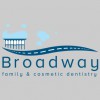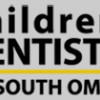
Welcome to the pediatric dental office of Children's Dentistry of Council Bluffs. Providing specialized dentistry for children and adolescents in a "child-friendly" environment. As pediatric dentists, we focus on preventive care to help each child have a healthy smile that will last a lifetime. Serving infants, children and teens in Council Bluffs, Atlantic, Shenandoah and all of southwestern Iowa.
Services
Our office, as well as the The American Academy of Pediatrics (AAP), the American Dental Association (ADA), and the American Academy of Pediatric Dentistry (AAPD) all recommend establishing a "Dental Home" for your child by one year of age.
Children who have a dental home are more likely to receive appropriate preventive and routine oral health care.
You can make the first visit to the dentist enjoyable and positive.
If old enough, your child should be informed of the visit and told that the dentist and their staff will explain all procedures and answer any questions.
Children who have a dental home are more likely to receive appropriate preventive and routine oral health care.
You can make the first visit to the dentist enjoyable and positive.
If old enough, your child should be informed of the visit and told that the dentist and their staff will explain all procedures and answer any questions.
The office attempts to schedule appointments at your convenience and when time is available.
Preschool children should be seen in the morning because they are fresher and we can work more slowly with them for their comfort.
School children with a lot of work to be done should be seen in the morning for the same reason.
Dental appointments are an excused absence.
Missing school can be kept to a minimum when regular dental care is continued.
Since appointed times are reserved exclusively for each patient we ask that you please notify our office 24 hours in advance of your scheduled appointment time if you are unable to keep your appointment.
Preschool children should be seen in the morning because they are fresher and we can work more slowly with them for their comfort.
School children with a lot of work to be done should be seen in the morning for the same reason.
Dental appointments are an excused absence.
Missing school can be kept to a minimum when regular dental care is continued.
Since appointed times are reserved exclusively for each patient we ask that you please notify our office 24 hours in advance of your scheduled appointment time if you are unable to keep your appointment.
For more information concerning pediatric dentistry, please visit the website for the American Academy of Pediatric Dentistry.
The pediatric dentist has an extra two to three years of specialized training after dental school, and is dedicated to the oral health of children from infancy through the teenage years.
The very young, pre-teens, and teenagers all need different approaches in dealing with their behavior, guiding their dental growth and development, and helping them avoid future dental problems.
The pediatric dentist has an extra two to three years of specialized training after dental school, and is dedicated to the oral health of children from infancy through the teenage years.
The very young, pre-teens, and teenagers all need different approaches in dealing with their behavior, guiding their dental growth and development, and helping them avoid future dental problems.
Some children are given nitrous oxide/oxygen - or what you may know as laughing gas - to relax them for their dental treatment.
Nitrous oxide/oxygen is a blend of two gases, oxygen and nitrous oxide.
Nitrous oxide/oxygen is given through a small breathing mask which is placed over the child's nose, allowing them to relax without putting them to sleep.
The American Academy of Pediatric Dentistry recognizes this technique as a very safe, effective technique for treating children's dental needs.
The gas is mild, easily taken, and it is quickly eliminated from the body and it is non-addictive.
Nitrous oxide/oxygen is a blend of two gases, oxygen and nitrous oxide.
Nitrous oxide/oxygen is given through a small breathing mask which is placed over the child's nose, allowing them to relax without putting them to sleep.
The American Academy of Pediatric Dentistry recognizes this technique as a very safe, effective technique for treating children's dental needs.
The gas is mild, easily taken, and it is quickly eliminated from the body and it is non-addictive.
If the procedure was in the lower jaw, then the tongue, teeth, lip and surrounding tissue will be numb or asleep.
If the procedure was in the upper jaw, then the teeth, lip and surrounding tissue will be numb or asleep.
Often, children do not understand the effects of local anesthesia, and may chew, scratch, suck, or play with the numb area.
These actions can cause minor irritations, or they can be severe enough to cause swelling and abrasions to the tissue.
Watch for darkening of traumatized teeth as this could be an indication of a dying nerve (pulp).
If the procedure was in the upper jaw, then the teeth, lip and surrounding tissue will be numb or asleep.
Often, children do not understand the effects of local anesthesia, and may chew, scratch, suck, or play with the numb area.
These actions can cause minor irritations, or they can be severe enough to cause swelling and abrasions to the tissue.
Watch for darkening of traumatized teeth as this could be an indication of a dying nerve (pulp).
Reviews

Be the first to review Children's Dentistry-Council.
Write a Review
